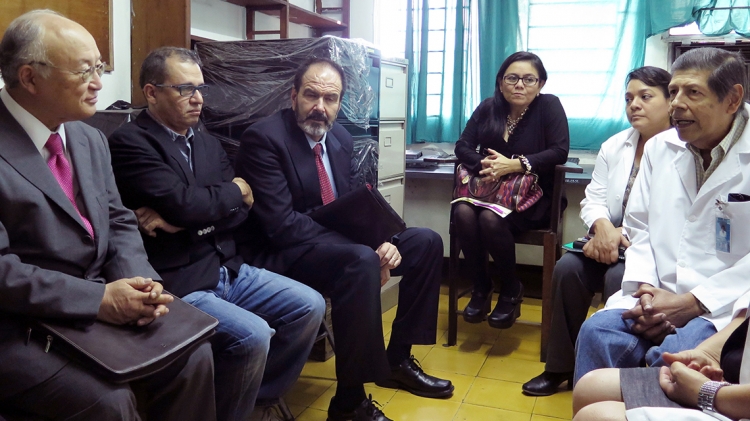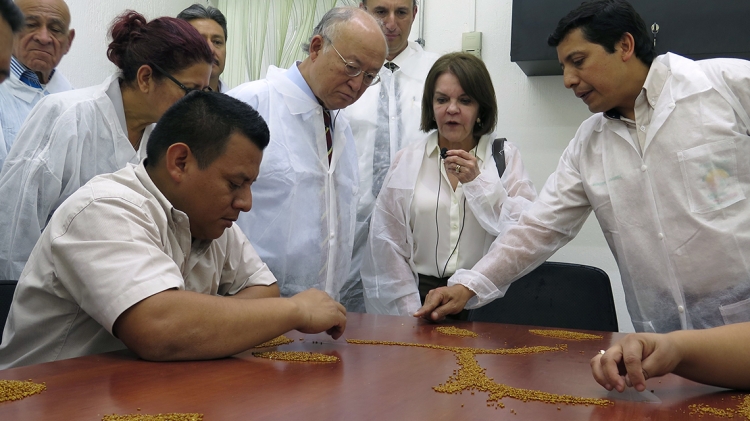A country doesn’t necessarily need to have nuclear power plants to benefit from the peaceful applications of nuclear technology. This is the case in El Salvador, Nicaragua and Guatemala, which all use nuclear technology extensively in medicine, water management and agriculture. IAEA Director General Yukiya Amano discussed cooperation in these and other areas during his visit to the three countries over the last week.
Ministers expressed appreciation for the IAEA’s technical cooperation projects, training courses, workshops, fellowships and scientific visits,which have helped them in the effective use of nuclear technologies. Mr Amano confirmed the IAEA’s commitment to continue supporting the countries, including in their efforts to achieve the United Nations Sustainable Development Goals. He also discussed ways in which the IAEA could help to reduce the population of mosquitoes that carry the Zika and other viruses using the sterile insect technique.
Cancer – and the IAEA’s work in helping countries to combat it – was a main topic of discussion in all three capitals. Last year in El Salvador, for example, the IAEA, the World Health Organization (WHO), and the International Agency for Research on Cancer (IARC) conducted a joint review of the country’s readiness to implement a cancer control programme. On the basis of the findings, the IAEA is now supporting the government in developing a cancer control policy, and in improving the quality of cancer treatment in the country.
Mr Amano encouraged all three countries to join or ratify the amendment to the Convention on the Physical Protection of Nuclear Material, a key amendment that strengthens countries’ obligation to physically protect nuclear material. Mr Amano also emphasized the IAEA’s role in ensuring the exclusive uses of nuclear energy and technology for peaceful uses, making reference to the 1967 Treaty for the Prohibition of Nuclear Weapons in Latin America and the Caribbean, also known as the Tlatelolco Treaty.
Nicaragua
In Managua, Nicaragua, Mr Amano met President Daniel Ortega, and discussed cooperation in cancer control and other uses of nuclear technology for development, as well as nuclear security. He also opened a regional workshop on radiation protection in medical and industrial applications, which brought together 17 countries from across Latin America and the Caribbean. Mr Amano also visited the Nora Astorga National Radiotherapy Centre.
Nicaragua was the first country in the region where the IAEA conducted a review mission to evaluate the country’s readiness for cancer control. Although the country has progressed in the field of oncology – the use of radiation to treat cancer – Nicaragua plans to further develop this technology, said Minister for Health Sonia Castro.







